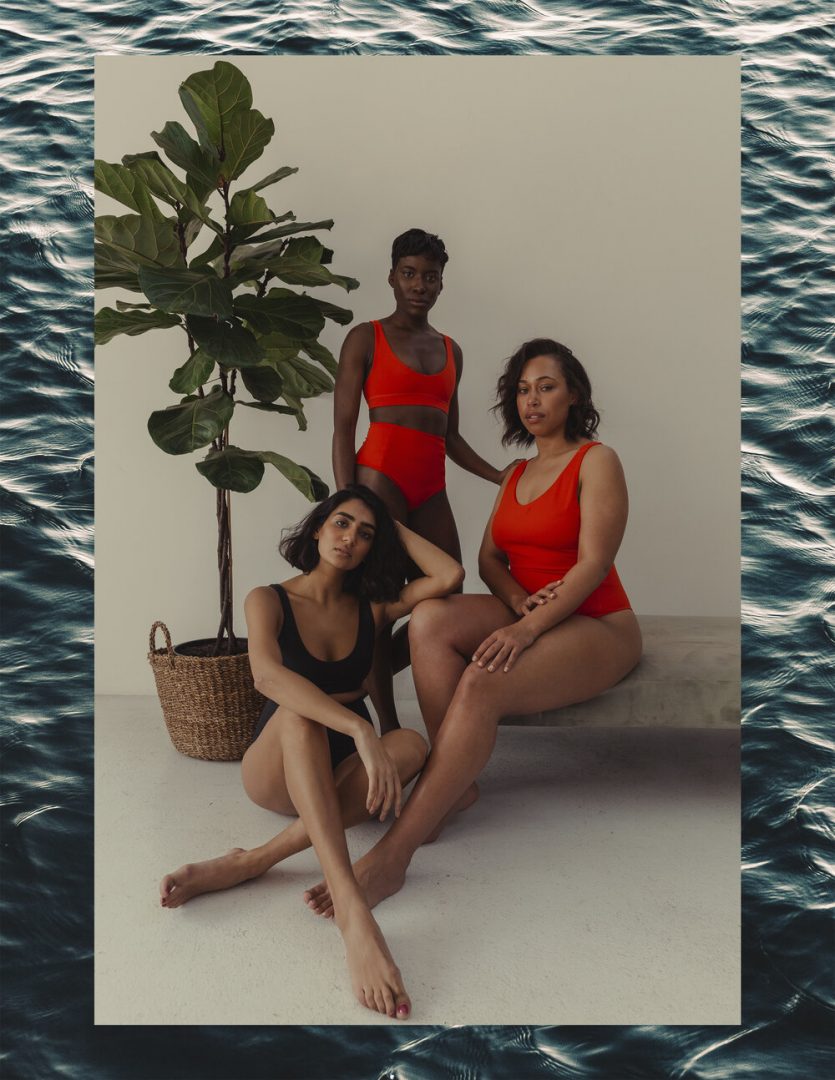The ubiquitous fast fashion industry was reportedly worth an estimated $35.8 billion in 2019. Whilst the industry allows for the mainstream consumer to keep up with the latest trends at attainable prices, recent years have seen the rival fight for sustainable fashion grow in following, and one major way this is epitomised is through the process of recycling – be it through fashion rentals, online designer resale sites, sample sales and clothing made of recycled materials.
Many choose fast fashion because of its affordability, but these sites aim to bring fashionable and sustainable goods to consumers at a fraction of the original price. With less than 11% of brands implementing recycling strategies for their clothing, these startups have stepped in as the critical, not to be forgotten, third-party. For this reason, we have chosen our top 10 sustainable fashion startups that you should be following.
For any questions, comments or features, please contact us directly.
1 – We Are TALA (Founder: Grace Beverley)
Company name: TALA
Founder: Grace Beverley
Product: Gymwear
Website: https://www.wearetala.com
Instagram: https://www.instagram.com/wearetala/?hl=en
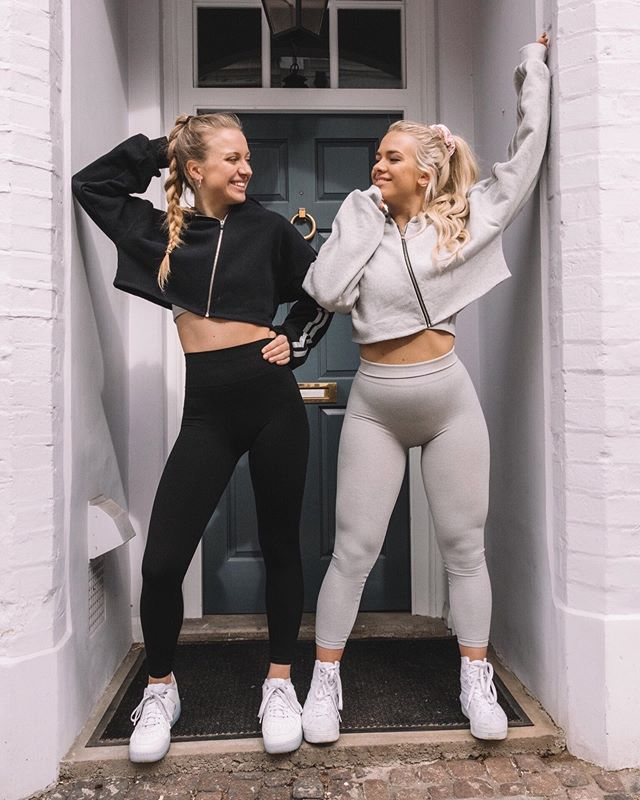
Unlike most high-street fashion brands, TALA takes what founder Grace Beverley denotes to be a ‘slow-fashion approach’. Specialising in affordable gymwear, the brand’s main focus is sustainability and veganism. Beverley originally set out to produce vegan-friendly resistance brands, but soon realised there was a gap in the clothing market. TALA offers sustainable gymwear at a similar price point to its competitors such as Gymshark. This means that while profit margins may be slimmer, the brand is fulfilling a niche in the market, doing its bit in aiming to improve sustainability in the fashion industry. The brand has since turned over £6m since its launch.
Founded in May 2019, Beverley’s vision came to life. Having settled on their clothing resourced from 92% recycled materials, the founder is still aiming for this to the remaining 8% to be upcycled one day, while still fairly priced for their young clientele. This means that the brand revolves around the fact that the consumer, especially the young, should not need to make any financial sacrifices to be sustainable.
Interestingly enough, the brand does differ from most fashion start-ups. TALA has spent almost nil on marketing strategies since its launch. Beverley started as a fitness ‘YouTuber’ so has a loyal millennial and Gen-Z following. This means that Instagram has been the biggest tool in spreading the message.
While big fast-fashion brands may be able to keep up with unlimited demand, TALA’s approach of slow-fashion is a sustainable alternative. Beverley wants conscious consumerism to be at the forefront of the activewear fashion market, and is certainly disrupting the current trends in this pursuit.
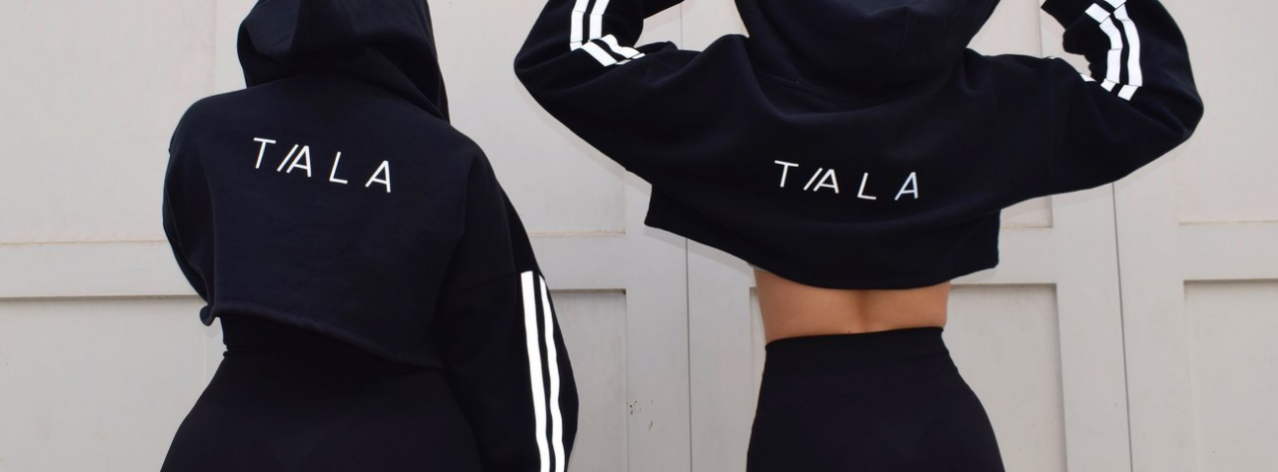
2 – The Box London (Founder: Natalie Yaffe)
Company name: THE BOX London
Founder: Natalie Yaffe
Website: https://thebox-london.com
Instagram: https://www.instagram.com/thebox_london/?hl=en
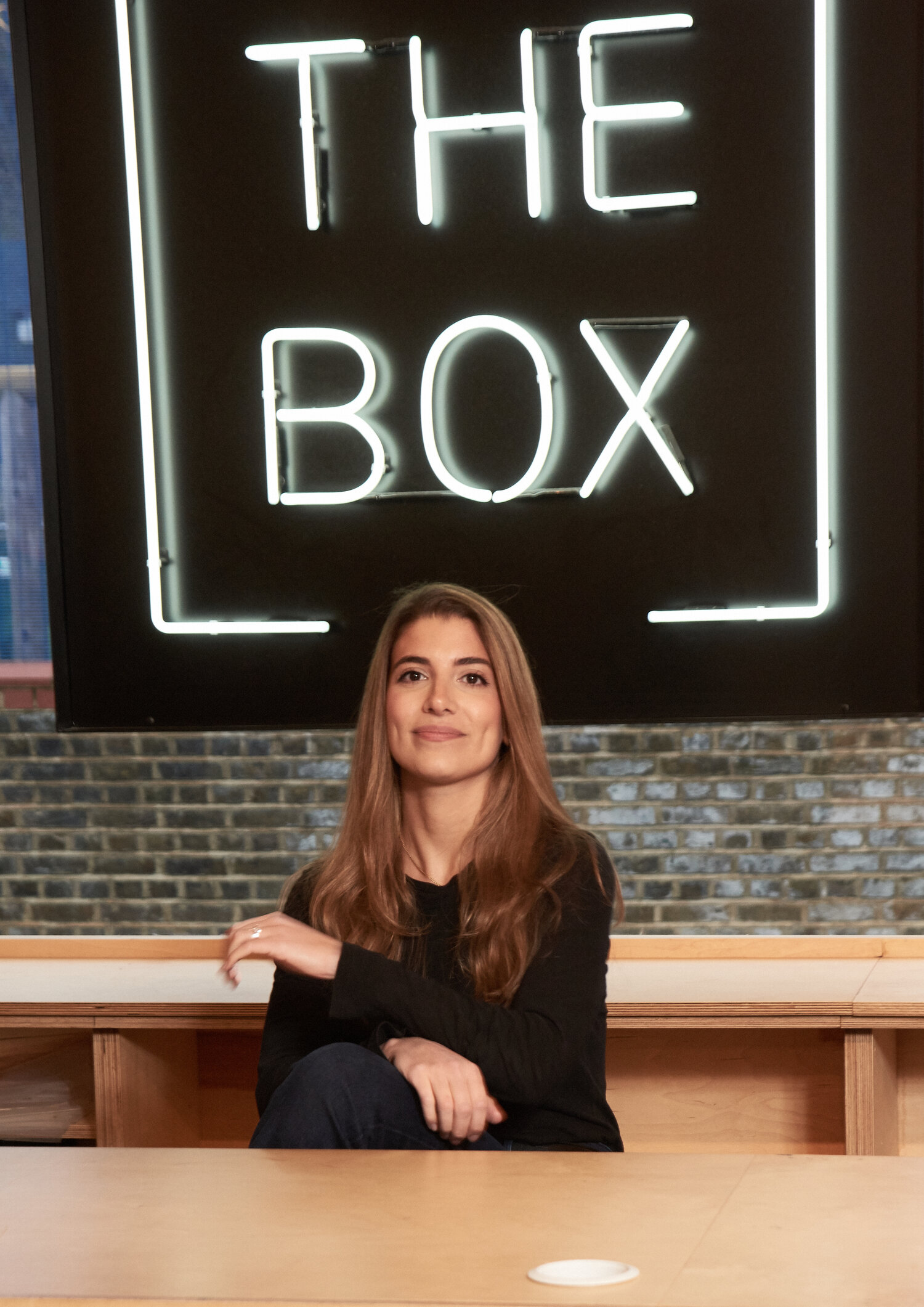
Founded in 2017, The Box London established by Natalie Yaffe is a permanent warehouse space designated for retail events in East London. The Box London hosts a busy calendar of weekly sample sales from luxury brands such as Fiorucci, Anya Hindmarch and Bella Freud to name a few. The Box London fulfils a niche in London. It serves as a permanent space where brands can host sample sales, instead of finding the venues across London themselves.
The concept of sample sales themselves have been around for a long time, but the link to sustainability is not always well-explored. In 2018, it was revealed by the luxury fashion brand Burberry that $36.8 million worth of its own merchandise was destroyed. This is a similar strategy employed by several brands, including Victoria’s Secret. The approach taken by these luxury brands stands to preserve their elitist and exclusive reputation. This demolition is an effort to avoid both unauthorised sellers, as well as ‘cheapening’ the brand, resulting in severe environmental damage.
Sample sales step in as the third-party. They save last seasons stock, or faulty goods in production, from being destroyed. Instead, the original RRP’s are marked down. At The Box London, this means prices could be reduced to up to 70-80% off their original price, sometimes cheaper than fast-fashion produce itself. The Box London has even adjusted to the pandemic, offering online slots to shop their sample sales online, such as Fiorucci this summer.
The Box London has recently opened its doors to independent brands, something which most spaces have not yet been open to. This has allowed for small and sustainable brands to get their foot in the door of the bustling fashion industry.
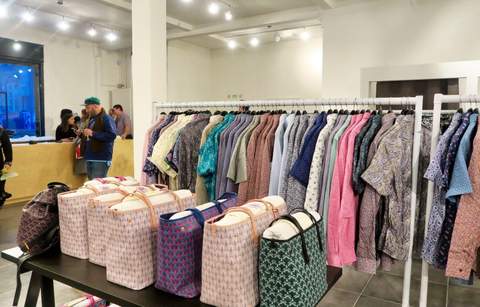
3 – HireStreet UK (Founder: Isabella West)
Company name: HireStreet UK
Founder: Isabella West
Website: https://www.hirestreetuk.com
Instagram: https://www.instagram.com/hirestreetuk/?hl=en
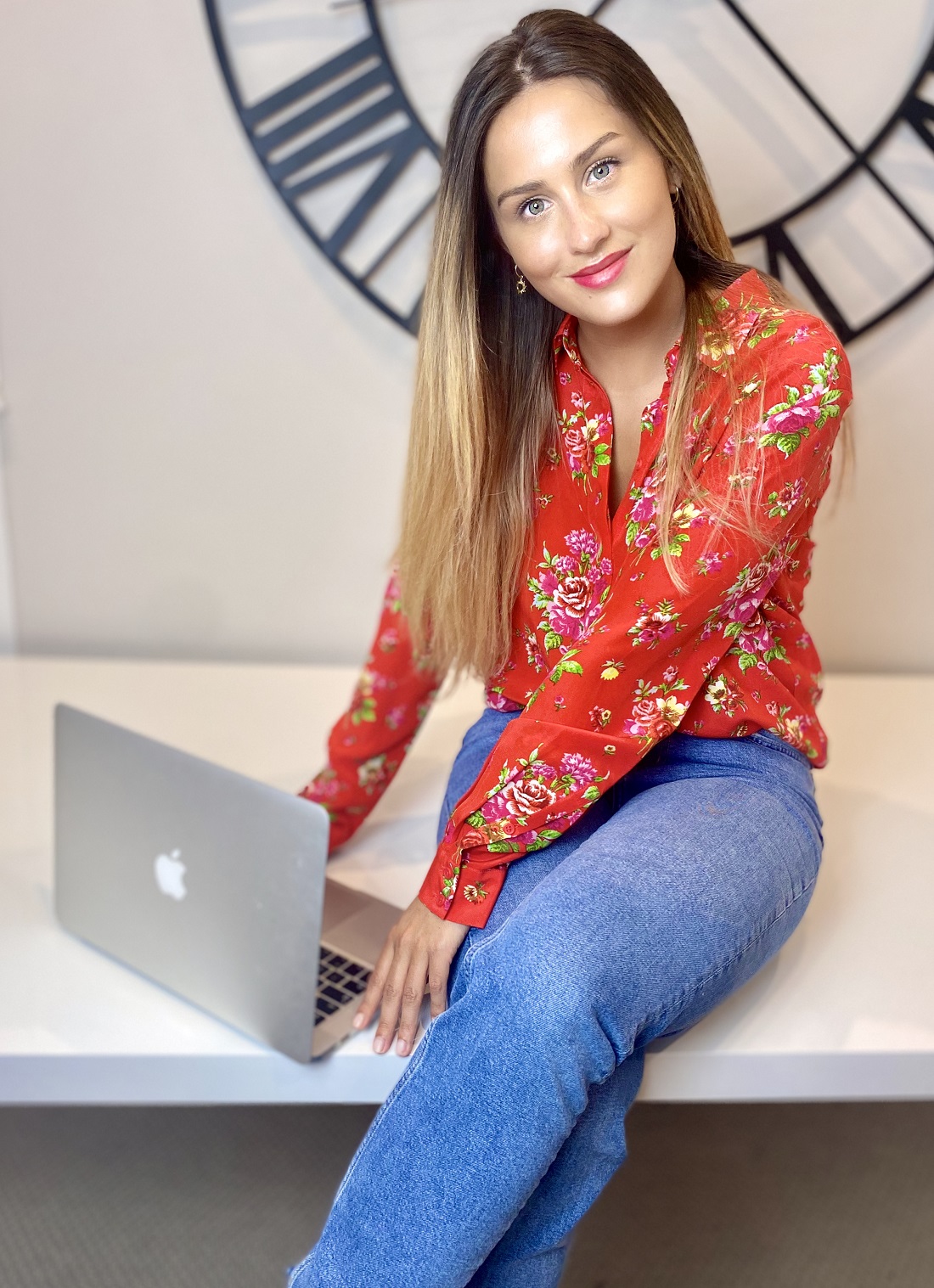
Hirestreet UK is an accessible fashion rental platform established by founder Isabella West in May 2018. West was fascinated with the concept that outfits could not be worn more than once. Once posted on an Instagram, the outfit would never make a second appearance on the social grid. Hirestreet instead offers a lifeline for fashion worshippers, reluctant to spend £100s on new outfits each week. As a recipient of the Sustainable Start-Up Award, West was able to keep Hirestreet 100% privately owned, having the freedom to explore her vision and build a Hirestreet community.
West’s prior research led her to discover that young women spend over £500 a year on disposable fashion. Hirestreet has stepped in to disrupt this. Customers are given the option to rent an outfit for 4-16 days, with brand choices ranging from high-street brands Topshop and Zara to Ghost and Finders Keepers. This means that the same Zara dress bought by Hirestreet could be worn up to 40 times a year by a different buyer each time, as opposed to 40 customers individually buying from the fast-fashion brand and wearing each wearing it only once or twice.
Unlike most fashion rental platforms, HiresStreet has fulfilled a niche operating only with high-street brands. This is because young consumers typically result in buying cheaper fast-fashion labels due to their price tag, which would often result in neglectful and wasteful consumption. On Hirestreet, the outfits can be rented for as little as £7.
Hiresteet even offers an online stylist service, which fulfils the companies ethos of helping women to be both sustainable and stylish.
4 – Reason to Rent (Founder: Alice Horwood)
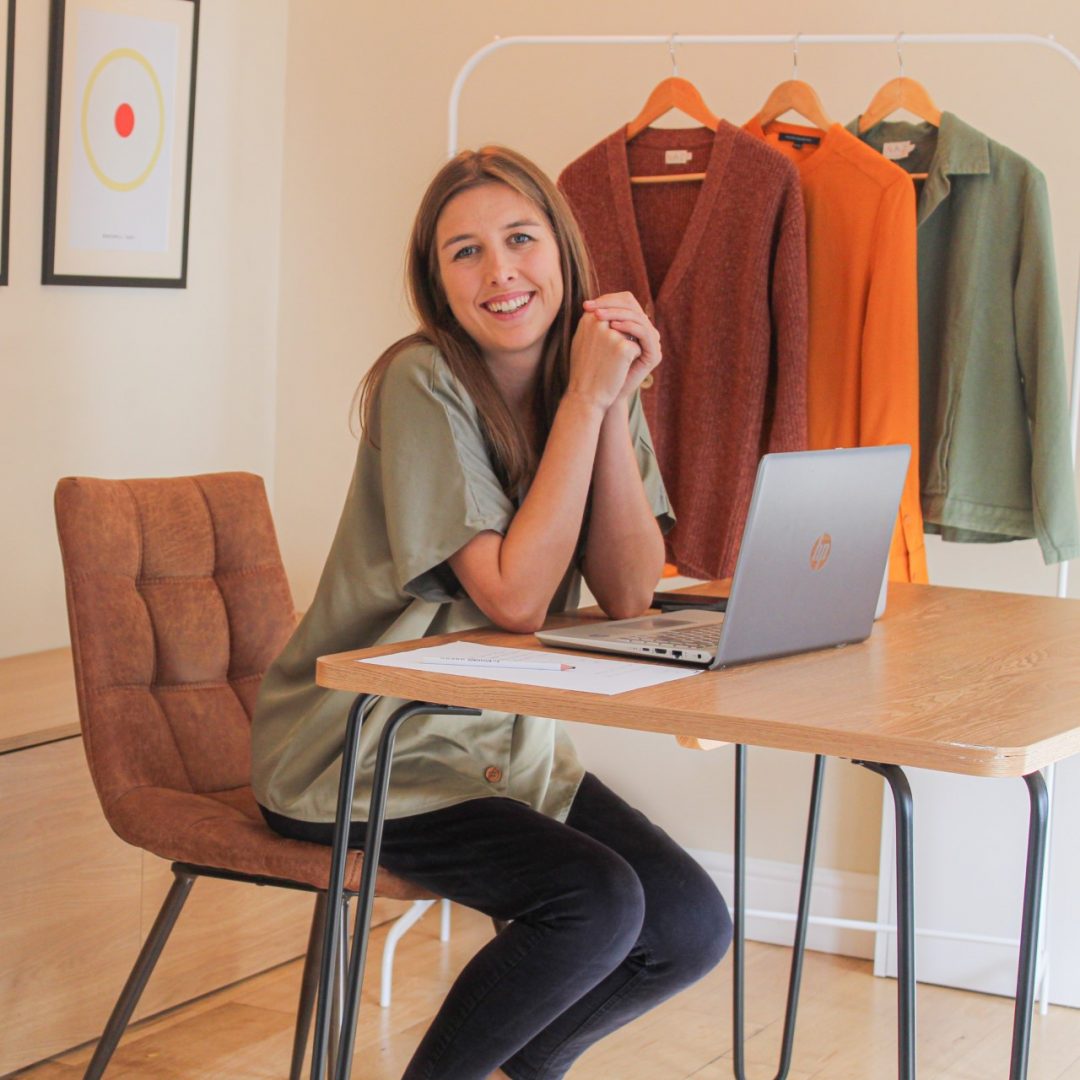
Company name: Reason to Rent
Founder: Alice Horwood
Website: reasontorent.co.uk
Instagram: https://www.instagram.com/reasontorent/
Established in January 2020 by founder Alice Horwood, Reason to Rent is certainly a sustainable fashion start-up to watch in 2020. The website essentially offers a curated service. Customers pick their favourite pieces from offered collections and these are sent to them ready to wear and enjoy. But unlike most fashion rental services, Reason to Rent is unique in that it is a subscription service and focuses on sustainability.
3 items can be rented for 28 days, postage, rental insurance and cleaning is all included. Essentially you can change your wardrobe every month hassle free. This means customers are less likely to purchase from fast-fashion retailers and via rental gain access to smaller independent brands. Horwood invites you to join the fashion ‘Rental Revolution’ and is making sustainable fashion, affordable fashion.
Reason to Rent is illustrative that consumer demand can revolutionise the fashion industry, and in this case, it is certainly for the best.
5 – Cudoni (Founder: James Harford-Tyrer)
Company name: Cudoni
Founder: James Harford-Tyrer
Website: https://www.cudoni.com
Instagram: https://www.instagram.com/cudoniuk/?hl=en

Cudoni is a luxury fashion resale platform. With luxury as a major focus, the items sold are high in quality and deemed to be made to ‘last a lifetime’. As such, Cudoni enables these designer pieces to be celebrated multiple times by different buyers, celebrating the quality workmanship. The lifetime of luxury goods is lengthened, and their impact on the environment declines.
In turn, this means that fewer designer goods are wasted, or simply destroyed. Instead, they are essentially reused and recycled. Cudoni takes the hassle away from the process of selling pre-loved luxury fashion goods, offering a bespoke service for its clients.
Driven by data-based research, Cudoni is unique in its commission-based approach. There are no upfront costs for the buyer or seller. The site even stocks rare and hard-to-find designer pieces, such as a Hermes Birkin 35 Crocodile Handbag.

For any questions, comments or features, please contact us directly.
6 – Lylie’s (Founder: Eliza Walter)
Company name: Lylie’s
Founder: Eliza Walter
Website: https://lylies.com
Instagram: https://www.instagram.com/salvagedgold/

Lylie’s is a sustainable jewellery brand with goods made from salvaged gold and silver. These materials are sourced and recycled from e-waste, scrap exchanges and even dental waste. With an estimated only 16% of e-waste recycled annually, this means that 84% of electronic disposals result in landfill sites, threatening the environment when it could be recycled.
Not only does Lylie’s use 100% salvaged materials, but the brand also encourages its customers to scrap their unwanted jewellery. By sending it in, customers receive site credits towards new Lylie’s pieces. This encourages a recycling culture, especially for those who like to change up their accessories each season.
Walter heads the only British jewellery brand that is founded on the premise of urban mining. The brand has been perfectly curated to draw in the conscious consumer.

7 – HURR (Founders: Victoria Prew and Matthew Geleta)
Company name: HURR Collective
Founder: Victoria Prew and Matthew Geleta
Website: https://www.hurrcollective.com/
Instagram: https://www.instagram.com/hurr/?hl=en
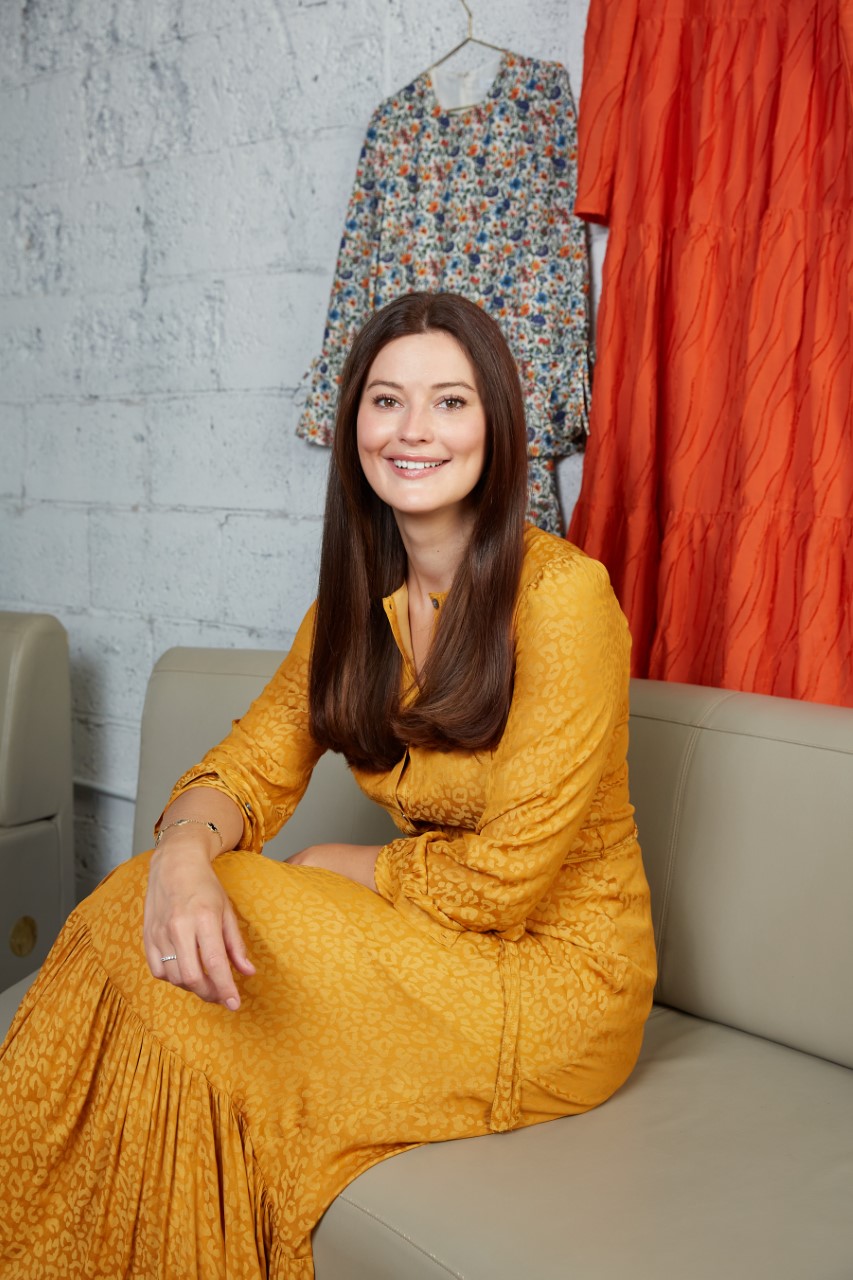
HURR Collective operates on the mantra that ‘It is cool to care’. The platform revolves around making fashion circular, meaning items can be rented, re-used, and thus essentially re-purporsed by each consumer in the ongoing cycle. Established by Victoria with co-founder Matthew, HURR not only operates in revolutionising sustainable fashion rentals, but also the integration of AI-powered fashion stylists. Something which no fashion rental platform has seen or covered before.
HURR even has a calculator to allow customers to see how much they could save both economically, and socially on behalf of the environment, by renting instead of buying a new outfit and renting it once. I tried the calculator out myself, and it showed that buying a £100 dress for a singular occasion was equivalent to two trees being cut down, or the same CO2 emissions as 245 miles driven in a car.
HURR has further partnered with several sustainable companies to ensure that their fashion rental process is as economically friendly as possible. This includes RePack reusable packaging, Oxwash ‘green’ dry cleaning and an EcoFleet courier service.
The ‘HURR girl’ is deemed to by Victoria and Matthew be both caring and stylish. She is ahead, and in the know of all things fashion and sustainability.

8 – For Days (Founders: Kristy Caylor and Mary Saunders)
Company name: For Days
Founders: Kristy Caylor and Mary Saunders
Website: https://www.fordays.com/
Instagram: https://www.instagram.com/for___days/?hl=en
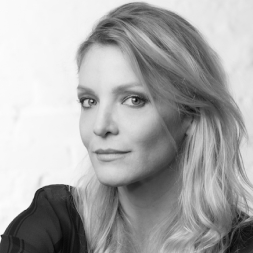

The For Days clothing brand ensures sustainability is at the forefront of their production, with all clothing made from 100% recyclable materials.
The brand, established by Caylor and Saunders, operates under a revolutionary closed-loop system, known as the SWAP programme. Any item, under the For Days SWAP membership, can be returned and recycled in exchange for a new one. This originally started with just t-shirts, but the start-up has since ventured into the manufacturing of sweatshirts, bags and trousers.
For Days is not just a clothing brand, but an online platform for circular and sustainable consumption. Memberships include free shipping and unlimited refreshes of For Days items. While the average lifespan of a t-shirt is typically very short, members can exchange theirs as frequently as they desire, in the knowledge that there are no negative repercussions on the environment.
The founders believe that they are creating a new future of ecommerce and they are not wrong. For Days will hopefully encourage other brands to follow suit, and lead a revolution against the perils of the fats-fashion industry.
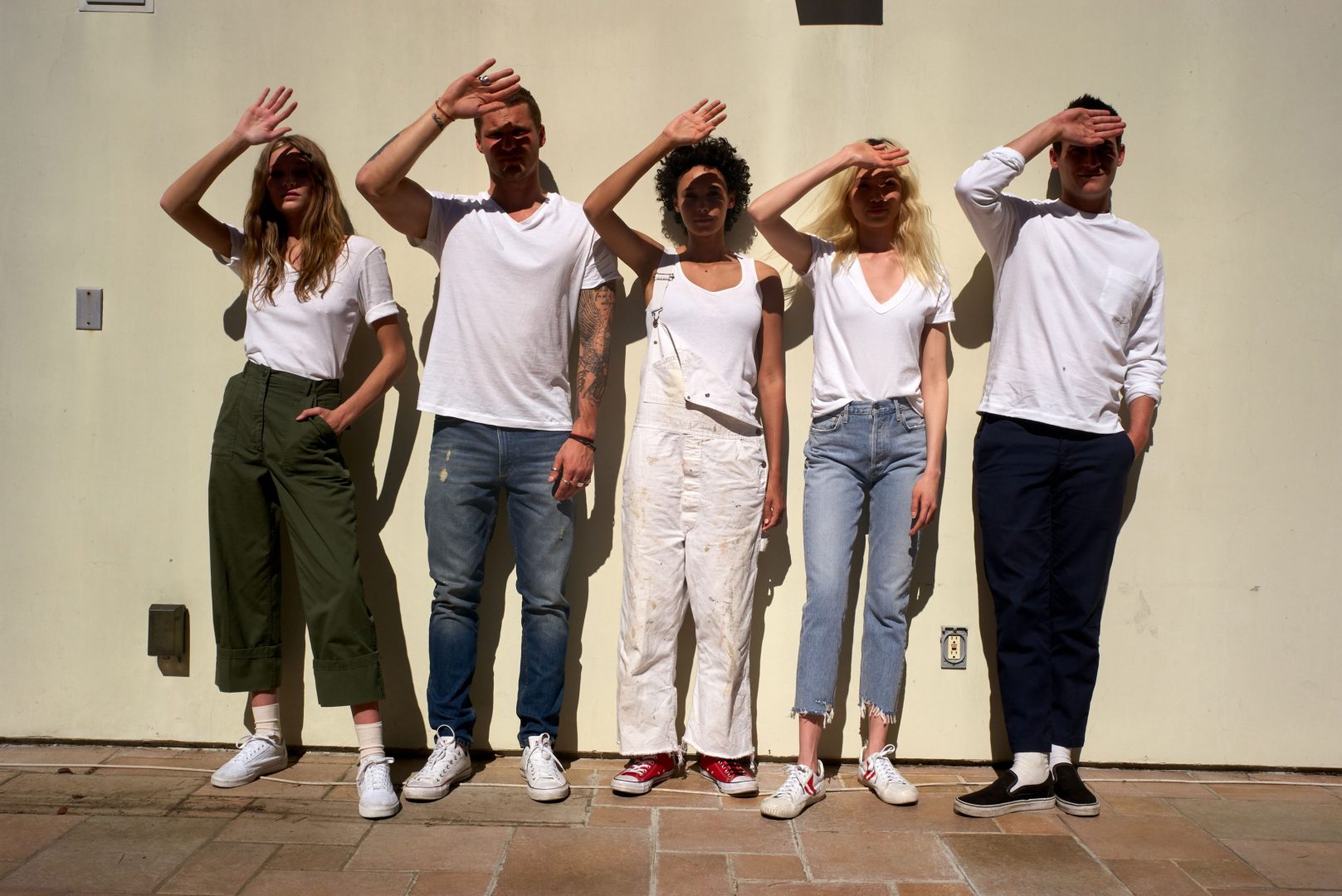
9 – By Laura Ella (Founder: Laura Ella)
Company name: By Laura Ella
Founder: Laura Ella
Website: https://www.lauraella.co.uk/
Instagram: https://www.instagram.com/planinternational/

Laura Ella works hard in her attempts through fashion to lead both a sustainable and feminist revolution. Unlike several popular fast-fashion brands, By Laura Ella does not condone unethical production processes such as poor factory conditions and pay for their workers. Instead, all stock is sourced from deadstock and vintage produce.
The brand also donates a percentage of its profits to the charity Plan International, an independent development and humanitarian organisation that empowers female and children’s rights through global advocacy work and raising awareness.
10 – Stay Wild Swim (Founders: Natalie Glaze and Zanna Van Dijk)
Company name: Stay Wild Swim
Founders: Natalie Glaze and Zanna Van Dijk
Website: https://staywildswim.com/
Instagram: https://www.instagram.com/staywildswim/?hl=en
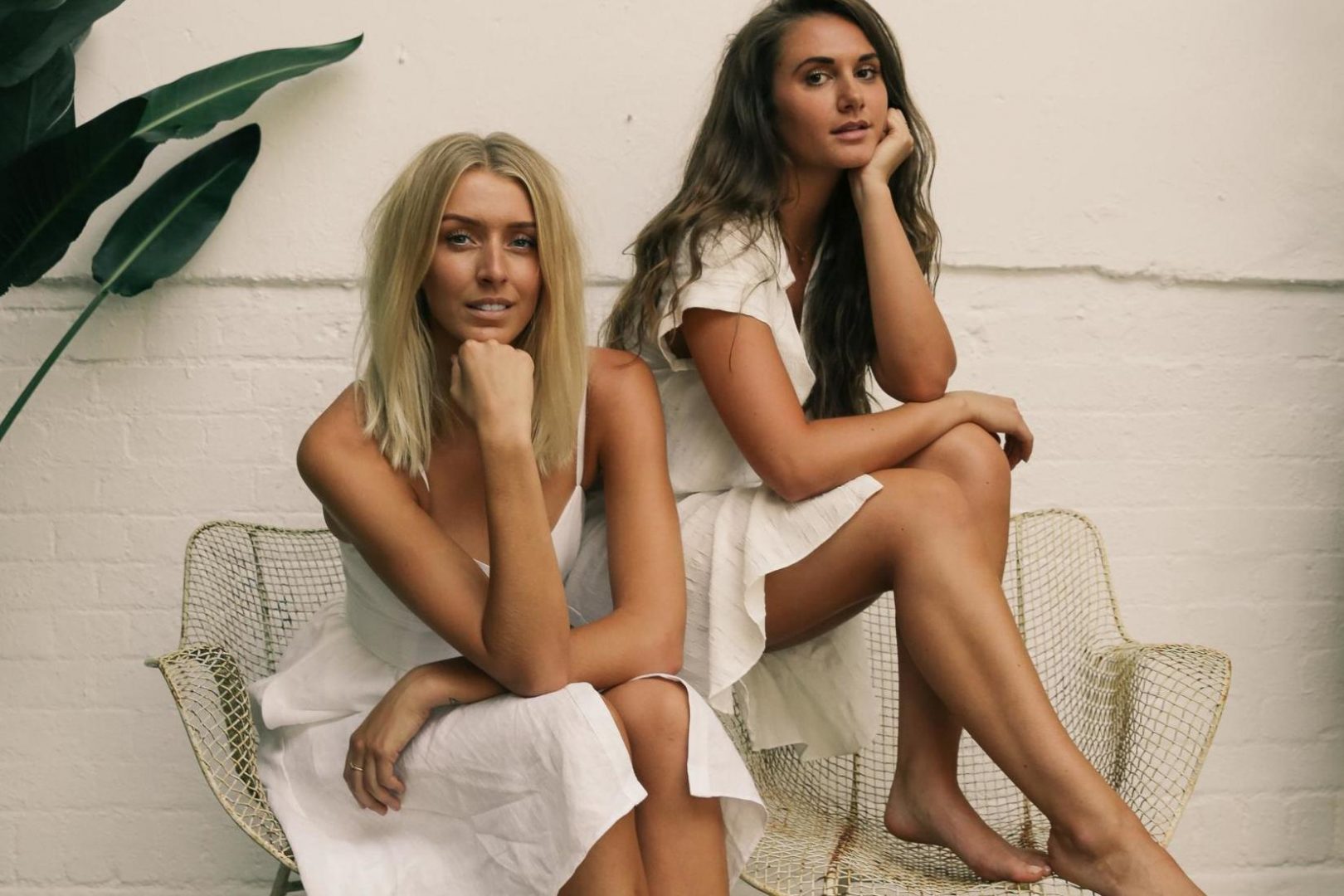
Stay Wild Swim is a sustainable swimwear brand founded by Natalie Glaze and Zanna Van Dijk in October 2018. The brand operates by converting plastics found in the oceans and turning it into regenerated nylon. Much of the production process is led locally in London, allowing the brand to support independent British companies.
In line with the concept of sustainable and slow fashion, Stay Wild Swm does not operate by the typical fashion seasons. Instead, the brand responds to customer needs by producing if and when recycled materials become available. Stay Wild Swim is thus unique in its approach to fashion as an audience and supply-led brand, not a season-led brand like the others.
The start-up has grown a community of over 28,000 and was stocked recently in Selfridges as part of their Bright Things Initiative. The online lookbook now not only features swimwear, but also face masks, t-shirts, washing bags and water bottles too.
